World Geography And Politics Daily News | 15 May 2023

Views (213)
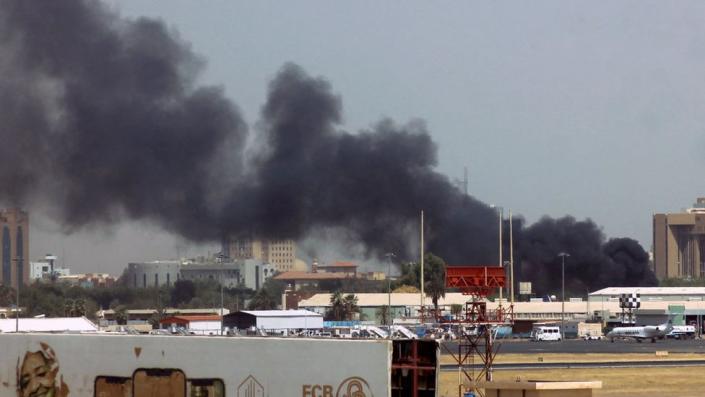
UK to Begin Trade Talks With Switzerland to Boost Services
(Bloomberg) -- The UK and Switzerland are kicking off negotiations for a new free trade agreement to boost the exchange of services between the two countries post-Brexit.Most Read from BloombergTurkey Latest: Erdogan Vote Below 50% Needed to Win ElectionRemote Work Comes With Daytime Drug and Drinking HabitsEarly Vote Count Shows Erdogan Below 50% in Turkish ElectionTrump Changed GOP Rules to Make Winning the Nomination Even Easier — for TrumpTrade Secretary Kemi Badenoch on Monday will fly to t
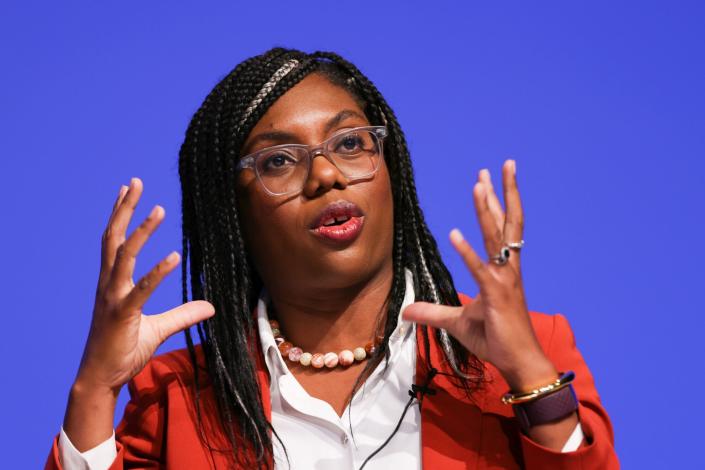
(Bloomberg) -- The UK and Switzerland are kicking off negotiations for a new free trade agreement to boost the exchange of services between the two countries post-Brexit.
Most Read from Bloomberg
Trade Secretary Kemi Badenoch on Monday will fly to the Swiss capital, Bern, for a meeting with her counterpart, Federal Councilor Guy Parmelin, according to a statement on Monday from the Department for Business and Trade. The formal negotiations will start next week.
Switzerland is the UK’s 10th biggest commercial partner, with bilateral trade totaling about £53 billion ($66 billion) a year.
The two countries’ existing deal rolled over from when Britain was in the EU predates the home computer and the internet, according to the department. The prize for negotiators is a new agreement that reduces barriers to trade between the two services “superpowers” in areas like finance, legal and professional services, and architecture, it said.
“The UK and Switzerland are natural trading partners and today’s launch will play to our strengths as services superpowers, while also boosting investment in emerging technologies, data innovation, and digital trade,” Badenoch said in the statement.
Negotiators also aim to make business travel easier between the two nations, to help companies in sectors like technology and life sciences share expertise. Another aim is to cut remaining tariffs on UK exports such as red meat, chocolate and baked goods. Switzerland imports over £5.5 billion a year of foodstuffs under product lines where tariffs still apply for the UK.
The UK government has presented signing new trade deals as one of the great benefits of Brexit. Earlier this year, Britain struck a deal to join an 11-nation Indo-Pacific free-trade bloc which includes Australia, Japan and Canada — a pact that Rishi Sunak’s government believes will boost economic growth and geopolitical relations.
UK to Join Indo-Pacific Trade Bloc in Major Post-Brexit Pact
But there’s also a long way to go to reverse the economic impact of a steep decline in trade with the EU, Britain’s biggest partner, since its exit three years ago. The UK’s independent budget watchdog recently estimated that Brexit likely reduced economic output by 4%.
Most Read from Bloomberg Businessweek
©2023 Bloomberg L.P.
Kenya cult: Children targeted to die first, pastor says
Fresh accounts emerge of the final days of deceased members of a Christian doomsday cult in Kenya.
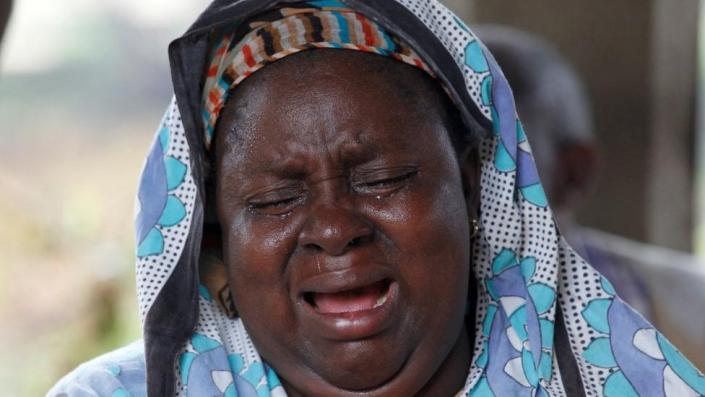
Children were targeted as the first to be starved to death in the final days of a Christian doomsday cult in Kenya, according to fresh accounts emerging.
Police investigating an apparent mass suicide have so far exhumed 201 bodies in a forest in the nation's southeast.
Women and men were next to follow the suicide plan, Titus Katana said.
"Then they wrapped them in blankets and buried them, even the ones still breathing," he was quoted as saying.
It is alleged that the cult followers were told they would reach heaven faster if they starved to death.
Official autopsies of some of the bodies in the expansive Shakahola farm, near the coastal town of Malindi, found signs of starvation, suffocation and beatings.
More than 600 people who are reported to be members of the doomsday cult allegedly led by Pastor Paul Mackenzie are still missing.
Pastor Mackenzie, who is currently in police custody, said he closed down his Good News International Church four years ago after nearly two decades of operation.
In an interview with Kenya's Daily Nation newspaper a few weeks ago, Pastor Mackenzie also denied he had forced his followers to starve themselves.
But Pastor Mackenzie preached against education, saying that it was satanic, after receiving a "revelation from God", Mr Katana told the New York Times.
Explaining his reasoning for leaving the cult, Mr Katana, who is also assisting in a police investigation against the pastor, said his teachings had become too "strange".
Pastor Mackenzie also encouraged mothers to avoid seeking medical attention during childbirth and not to vaccinate their children.
Much of Pastor Mackenzie's preaching relates to the fulfilment of Biblical prophecies about Judgement Day.
The church's online content also features posts about the end of the world, impending doom and the supposed dangers of science.
And there are frequent warnings of an omnipotent satanic force that has supposedly infiltrated the highest echelons of power around the world.
Turkey's Erdogan says he could still win, would accept presidential election runoff
Turkish President Recep Tayyip Erdogan, who has ruled his country with an increasingly firm grip for 20 years, was locked in a tight election race Sunday, with a make-or-break runoff against his chief challenger possible as the final votes were counted. The results, whether they come within days or after a second round of voting takes place in two weeks, will determine if a NATO ally that straddles Europe and Asia but borders Syria and Iran remains under Erdogan's control or resumes the more democratic path promised by his main rival, opposition leader Kemal Kilicdaroglu. Speaking to supporters in Ankara, Erdogan said he could still win but would respect the nation’s decision if the race went to a runoff vote in two weeks.
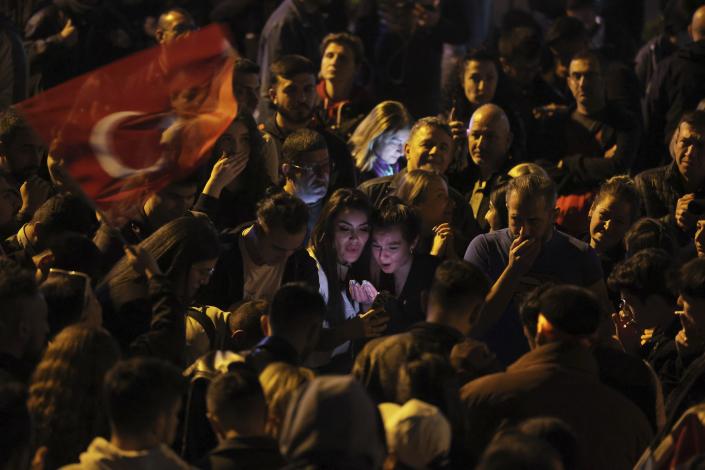
Speaking to supporters in Ankara, Erdogan said he could still win but would respect the nation’s decision if the race went to a runoff vote in two weeks.
“We don’t yet know if the elections ended in the first round. ... If our nation has chosen for a second round, that is also welcome,” Erdogan said early Monday, noting that votes from Turkish citizens living abroad still need to be tallied. He garnered 60% of the overseas vote in 2018.
This year's election largely centered on domestic issues such as the economy, civil rights and a February earthquake that killed more than 50,000 people. But Western nations and foreign investors also awaited the outcome because of Erdogan's sometimes erratic leadership of the economy and efforts to put Turkey at the center of international negotiations.
With the unofficial count nearly completed, voter support for the incumbent had dipped below the majority required for him to win reelection outright. Erdogan had 49.6% of the vote, while Kilicdaroglu, the candidate of a six-party alliance, had 44.7%, according to the state-run news agency Anadolu.
Turkey’s election authority, the Supreme Electoral Board, said it was providing numbers to competing political parties “instantly” and would make the results public once the count was completed and finalized.
The majority of ballots from the 3.4 million eligible overseas voters still needed to be tallied, according to the board, and a May 28 runoff election was not assured.
Howard Eissenstat, an associate professor of Middle East history and politics at St. Lawrence University in New York, said Erdogan was likely to have an advantage in a runoff because the president's party was likely to do better in a parliamentary election also held Sunday. Voters would not want a “divided government,” he said.
Erdogan, 69, has governed Turkey as either prime minister or president since 2003. In the run-up to the election, opinion surveys had indicated the increasingly authoritarian leader narrowly trailed his challenger.
With the partial results showing otherwise, members of Kilicdaroglu’s center-left, pro-secular Republican People’s Party, or CHP, disputed Anadolu’s initial numbers, contending the state-run agency was biased in Erodgan’s favor.
Omer Celik, a spokesperson for Erdogan's Justice and Development, or AK, party, in turn accused the opposition of “an attempt to assassinate the national will.” He called the opposition claims “irresponsible.”
While Erdogan hopes to win a five-year term that would take him well into his third decade as Turkey's leader, Kilicdaroglu, 74, campaigned on promises to reverse crackdowns on free speech and other forms of democratic backsliding, as well as to repair an economy battered by high inflation and currency devaluation.
With 92% of ballot boxes counted, Anadolu news agency said Erdogan’s ruling party alliance was hovering below 50%, while Kilicdaroglu's Nation Alliance had around 35% and a pro-Kurdish party above 10%.
“That the election results have not been finalized doesn’t change the fact that the nation has chosen us,” Erdogan said.
More than 64 million people, including the overseas voters, were eligible to vote and nearly 89% voted. This year marks 100 years since Turkey’s establishment as a republic — a modern, secular state born on the ashes of the Ottoman Empire.
Voter turnout in Turkey is traditionally strong, despite the government suppressing freedom of expression and assembly over the years and especially since a 2016 coup attempt. Erdogan blamed the failed coup on followers of a former ally, cleric Fethullah Gulen, and initiated a large-scale crackdown on civil servants with alleged links to Gulen and on pro-Kurdish politicians.
Erdogan, along with the United Nations, helped mediate a deal with Ukraine and Russia that allowed Ukrainian grain to reach the rest of the world from Black Sea ports despite Russia’s war in Ukraine. The agreement, which is implemented by a center based in Istanbul, is set to expire in days, and Turkey hosted talks last week to keep it alive.
Critics maintain the president’s heavy-handed style is responsible for a painful cost-of-living crisis. The latest official statistics put inflation at about 44%, down from a high of around 86%. The price of vegetables became a campaign issue for the opposition, which used an onion as a symbol.
In contrast with mainstream economic thinking, Erdogan contends that high interest rates fuel inflation, and he pressured the Central Bank of the Republic of Turkey to lower its main rate multiple times.
Erdogan’s government also faced criticism for its allegedly delayed and stunted response to the 7.8 magnitude earthquake that left 11 southern provinces devastated. Lax implementation of building codes is thought to have exacerbated the casualties and misery.
In his election campaign, Erdogan used state resources and his domineering position over media to try to woo voters. He accused the opposition of colluding with “terrorists,” of being “drunkards” and of upholding LGBTQ+ rights, which he depicts as threatening traditional family values in the predominantly Muslim nation.
In a bid to secure support, the Turkish leader increased wages and pensions and subsidized electricity and gas bills, while showcasing Turkey’s homegrown defense and infrastructure projects.
“Paychecks, or putting food on the table doesn’t necessarily surmount the identification one feels for one’s own political party,” Eissentat, the university professor, said. “Erdogan’s efforts at polarization, demonization of the opposition as traitors and as terrorists, the use of culture wars, ... that’s all made to play on those dynamics.”
“We have all missed democracy so much. We all missed being together,” Kilicdaroglu said after voting at a school in Ankara.
Also seeking the presidency was Sinan Ogan, a former academic who had the backing of an anti-immigrant nationalist party and more than 5% of votes tallied so far.
___
Bilginsoy reported from Istanbul. Mucahit Ceylan contributed from Diyarbakir, Turkey.
___
This version has been corrected to show that Turkey straddles Europe and Asia, not the Middle East.
Brexit helped thwart Putin’s Ukraine invasion, says Jacob Rees-Mogg
Brexit has helped to prevent Vladimir Putin’s invasion of Ukraine from succeeding, Jacob-Rees Mogg has claimed.
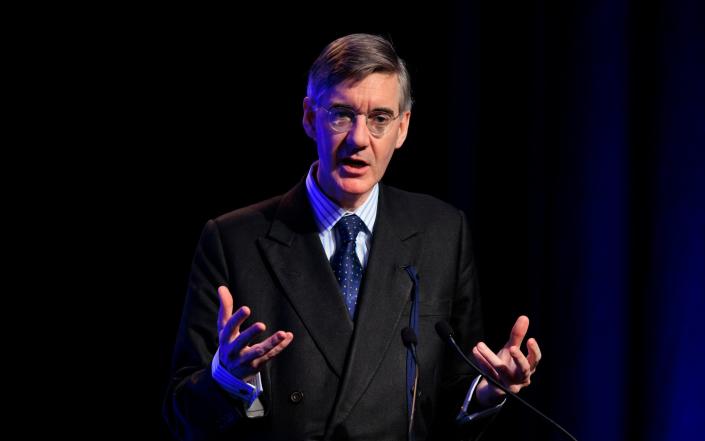
Brexit has helped to prevent Vladimir Putin’s invasion of Ukraine from succeeding, Jacob-Rees Mogg has claimed.
Mr Rees-Mogg referred to the principle of “sincere cooperation”, which means the EU and its member states must “in full mutual respect assist each other” by performing tasks that stem from its range of treaties.
“Putin would probably have invaded Ukraine successfully if the UK had been bound in by the requirement of sincere cooperation and had had to follow a Franco-German line in dealing with Russia, which is what we did in 2014.
Pressed on whether he “genuinely” believed Putin would have launched a successful invasion without Brexit, Mr Rees-Mogg replied: “I think the leadership shown by Boris Johnson, which he could only do because he was not bound by sincere cooperation, ensured that a coalition was set up that made it impossible for Putin to succeed.
“And if I think that hadn’t been the case, we’d have been bound by this concept of sincere cooperation, we’d have had the mucky compromise that was delivered in 2014 when Russia invaded the Crimea. But I think it’s really important.”
Mr Johnson oversaw some £3.8 billion of military and economic support for Ukraine between the Russian invasion in February 2022 and his departure from Downing Street seven months later.
He enjoyed high levels of support among Ukrainians and paid a number of visits to the war-torn country, forming a close bond with Volodymyr Zelensky, the Ukrainian president.
Mr Zelensky has lauded the former prime minister for supporting his country “from the first day of the Russian terror” and championing Western military aid before many other European leaders.
Elsewhere in his interview on Sunday morning, Mr Rees-Mogg said it had “of course” been a mistake for Conservative MPs to oust Mr Johnson last summer after a series of scandals.
However, he added: “It would be an even bigger mistake now to get rid of Rishi Sunak. The Conservative Party cannot keep on changing leaders. We must back the leader we have got.
“I’m supporting Rishi Sunak, let me be clear about that. The Tory Party would be toast if we changed leader again, and we need to support the leader we’ve got. But that doesn’t mean we agree with him on every policy.”
Mr Rees-Mogg – who left Cabinet when Mr Sunak came to power in October – was among the speakers at a conference held by Conservative Democratic Organisation on Saturday.
The pressure group has been set up by disillusioned backers of Mr Johnson after he and then Liz Truss were forced out of No 10 despite being elected by party members. A number of its key figures have publicly urged the return of Mr Johnson.
“The people who have messed it up have been the MPs not the members of our party,” Mr Rees-Mogg told the conference.
He described Mr Johnson as the “most successful electoral asset” the Tories had, adding he was “removed without so much as a by-your-leave from the members”.
Kentucky’s bitter GOP governor primary comes to a head
Kentucky’s contentious GOP gubernatorial primary is drawing to a finish Tuesday in a race that poses high stakes for the party looking to unseat Gov. Andy Beshear (D). State Attorney General Daniel Cameron, former U.N. ambassador Kelly Craft and Agriculture Commissioner Ryan Quarles have regularly polled as the three main front-runners in the crowded Republican…
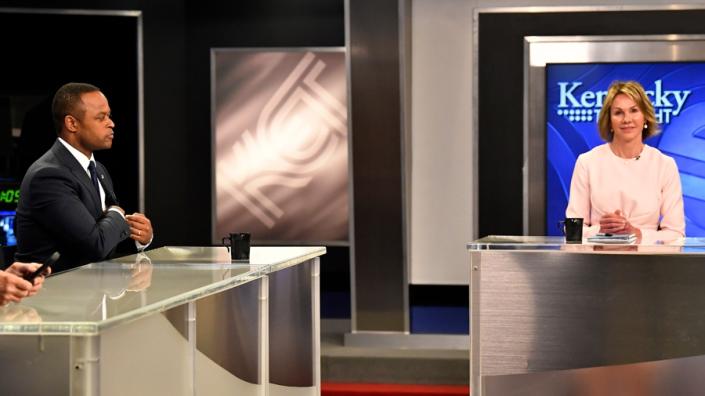
Kentucky’s contentious GOP gubernatorial primary is drawing to a finish Tuesday in a race that poses high stakes for the party looking to unseat Gov. Andy Beshear (D).
State Attorney General Daniel Cameron, former U.N. ambassador Kelly Craft and Agriculture Commissioner Ryan Quarles have regularly polled as the three main front-runners in the crowded Republican primary field jockeying to take on Beshear this fall, with Cameron widely viewed as leading the field.
But Cameron and Craft have largely used their ammo on each other between the debate stage and millions of dollars in attack ads, leaving Republicans eager to move past the bruising primary and focus on the more challenging test ahead: taking down a popular red-state Democrat.
“I still think that Cameron’s in a really strong position. He’s just a very popular figure,” said Republican public affairs consultant Tyler Glick.
While he noted Craft’s attacks had “eaten into his numbers a bit,” Glick argued that didn’t mean voters were heading toward Craft instead. “I think he’s weathered the worst of it,” he said, pointing to the establishment of the super PAC supporting him and spending to be able to counter those attacks.
The stakes for Republicans are twofold: Republicans will need to effectively coalesce around one candidate if they have any hope of chipping away at the popular governor’s support in order to flip the governor’s mansion.
But there are national implications, too. Should Beshear walk away with another term, that could cause some anxiety at the national level for Republicans who will look at the gubernatorial race as a bellwether for 2024.
In a primary where its three top candidates have largely been aligned on key issues like abortion and gun rights, Cameron, Craft and Quarles have relied on endorsements, the airwaves and strategy to differentiate themselves from the pack.
“I think Craft is going to be, ‘I saw her ad and like her.’ I think Cameron is going to be, ‘I’m familiar with him. He’s got the Trump endorsement,'” said GOP strategist and former Quarles campaign manager Tres Watson.
“And Quarles is going to be more kind of, ‘I know that guy, he’s been elected twice statewide by very large margins, and he’s got the strongest grassroots network.'”
Cameron has needled Craft about not getting Trump’s endorsement during a recent debate hosted by the Kentucky Educational Television (KET) — an endorsement Kentucky-based GOP strategist Scott Jennings said is “probably enough to win.”
“Kelly, you spent six months telling folks that you were going to get the Donald Trump endorsement. You had him at the [Kentucky] Derby last year. And then I got the endorsement, and your team has been scrambling ever since,” Cameron said during the KET debate.
“In the final days of the primary, Kelly continues to crisscross the Commonwealth to meet Kentuckians who all want the same thing: removing woke ideologies from our schools, fighting the fentanyl crisis, and growing the economy,” Craft campaign spokesperson Weston Loyd said in a statement to The Hill.
“These are all issues that Kelly is familiar with, and her experience helping President Trump rip up NAFTA and standing up to the Chinese Communist Party enables her to hit the ground running as Governor on her first day in office,” he added.
“The only poll I’m worried about is the one on May 16 when this election concludes, but we’re focused on nobody’s race but my own,” Quarles told The Hill in an interview. “We have been able to stay out of the negativity of this race and just focus on ideas, and I think a lot of Republican primary voters will reward me for that.”
“The one thing you hear consistently is, ‘I’ll be glad when it’s over so we can all be on the same team again,’” Jennings said.
“I did not feel that way in ’19,” Jennings said. “There were bunches of Republicans who had no interest in supporting Matt Bevin … and ultimately did not. And I just don’t sense that this time.”
Still, Republicans believe they’ll have a strong case to make against Beshear no matter who the nominee is, with Republicans pointing to voters’ party affiliation in the state as one data point.
Beshear “won with 5,000 votes in 2019. We’ve increased voter registration by well over 100,000 Republicans since then,” said one GOP strategist in the state. “And so the fundamentals in this election could not be … better for whoever the Republican nominee is. Having the [GOP] nomination is one of the best attributes any candidate running for office in Kentucky can have.”
Dave Contarino, a Kentucky-based Democratic strategist who’s worked on gubernatorial campaigns around the country, said he thinks Beshear “has broad support among independents, and I think he has demonstrated with 61 percent approval rating that he’s got some percentage of Republicans actively supporting him.”
Colmon Elridge, chairman of the Kentucky Democratic Party, likes the party’s odds, too.
“The notion that he cannot work in a bipartisan way is just fiction,” Elridge said, pointing to the funding secured for the Brent Spence Bridge Corridor Project that received bipartisan support. “What he has done and what he continues to stand up against is cruelty and overreach.”
Ultimately, Republicans say they’ll need to adequately make the case against Beshear while also offering their own vision for the governor’s mansion.
“We got to walk and chew gum at the same time,” the GOP strategist said. “We’ve got to make sure that we educate Kentuckians about the record of the governor, but we also need to make sure that we present a plan for how we would lead with a vision for a Republican governor, what a blueprint would be for a Republican governor [on] day one in office.”
From Syria to Sudan: The nightmare followed me
Kareem thought he had found safety but his life was then engulfed in violence once more.
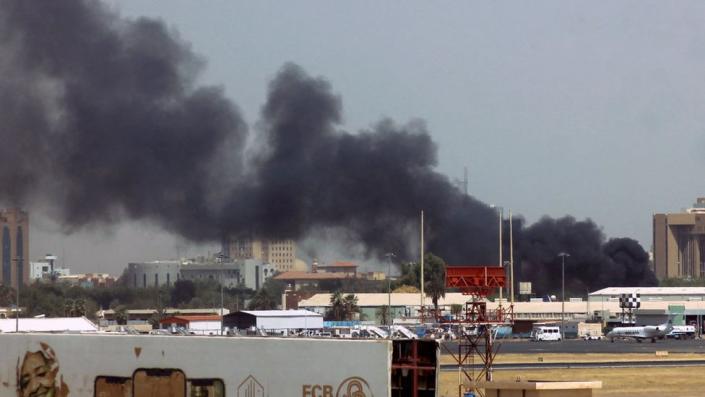
Kareem, who two years ago fled the chaos caused by the civil war in his home country, Syria, has found himself once more in the middle of a battle zone - this time in Sudan.
Now he is homeless in Port Sudan looking for a way out and fearing that he may have no choice but to return to Syria.
The 23-year-old used to work in the Sudanese capital, Khartoum, for a company that provided him with a flat, a car and a monthly salary of $500 (£400). It was enough to make ends meet and send money to his family back home, he says.
A month ago, he was even thinking of proposing to a woman he knew and had already told his mother about her.
"My life was fine in Sudan. I could not ask for more," he told the BBC in one of a series of voice and text messages explaining what had happened.
But on 15 April, when the fighting between two military forces started to destroy parts of the capital, Khartoum, Kareem felt that part of his life had been destroyed as well.
He says a Syrian man he knew well was shot and killed.
Fearful that he might suffer the same fate, on the morning of 24 April he joined a group of more than two dozen other Syrians and fled the capital for Port Sudan on the Red Sea.
The two-day road journey cost them a small fortune. In normal times, the fare would be $40 but the evacuees were charged $400 each.
He strongly believes that bad luck is chasing him and his fellow Syrians.
"History is repeating itself," says Kareem, whose name we have changed to protect his identity. "Here, we are going through exactly what we had lived through in Syria.
"We are cursed. I have not lived my life yet."
Stuck in Port Sudan, Kareem knows others who have managed to get on planes to escape to safety. One key factor seems to be about funding.
"You know, it is always about money - those who have money can always survive," he texted after charging his phone at a mosque.
Many Syrians fled to Sudan during the civil war. There is no official record of their number, but some estimates put it as high as 150,000.
He said that many Syrians, who have money or whose families are wealthy and have resident's permits in neighbouring countries, have managed to get out.
But he could not.
He is the youngest member of a modest family. He grew up in Idlib but fled to Aleppo years ago where they lived under siege. His relatives were depending on the money he used to earn in Sudan.
When he first made contact with the BBC, Kareem sounded disappointed about what was happening, but he was still hopeful.
He was listing his options: "I can go to Jeddah [in Saudi Arabia] and then find another opportunity. Or I can travel to Ethiopia - it would cost me $400."
He knew that he could not find refuge in neighbouring Egypt, as he could not pay for an expensive tourist visa.
"We ran out of money to buy food, so how would any of us borrow $1,350? I worked in Sudan for two years to save $1,000, which I have already spent [to get to Port Sudan]."
As things have progressed, Kareem's voice notes have been getting increasingly grim. His options were shrinking by the day.
He has been trying to assess his situation based on the updates he hears from officials and others while wandering around the port.
He learnt that there was no point waiting for a ship to take him to Saudi Arabia as he had no family connection there or a way to guarantee that he would not stay in the kingdom.
Also, his passport is expiring soon, which would prevent him from traveling to Ethiopia or any other country.
Now he sounds numb. Desensitised. He has no updates to share.
"I swear to God, I don't feel anything any more. My black hair has partly turned grey. I may go back to Syria with no fear any more. I won't care any more. I have nothing else to lose."
He never imagined returning to Syria as this would mean doing compulsory military service. He preferred to work abroad and build a better life.
But even returning home is costly and difficult.
A volunteer who is helping in the evacuation at Port Sudan told the BBC that there would be daily flights to Syria until 15 May and that each flight had two categories: commercial and evacuation.
On the commercial side a ticket can be bought through travel agents in Syria, while the seats for evacuation are given for free to people whose names are on the lists.
Priority is given to elderly people, those with health problems, pregnant women and families.
A commercial tickets costs $450.
Kareem says his family has been trying to secure a ticket - but all flights were booked, they were told.
"All problems could be solved with $3,000," he says while explaining his dream plan.
"I can renew my passport with $300, then I pay for the visitor visa to Egypt and then I can go to Turkey, where my sister lives. Then I can find a way to go to Europe."
"But who can lend me $3,000 these days?"
Additional reporting by Mays Baki
0 Likes
